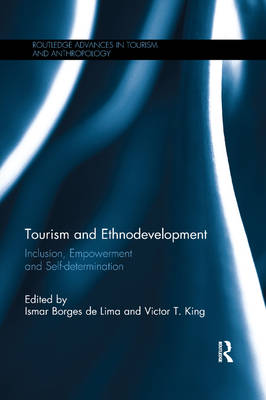
- Afhalen na 1 uur in een winkel met voorraad
- Gratis thuislevering in België vanaf € 30
- Ruim aanbod met 7 miljoen producten
- Afhalen na 1 uur in een winkel met voorraad
- Gratis thuislevering in België vanaf € 30
- Ruim aanbod met 7 miljoen producten
Tourism and Ethnodevelopment
Inclusion, Empowerment and Self-Determination
Omschrijving
Ethnodevelopment is a well-established concept in the field of development studies. Despite its relevance to tourism initiatives and processes in the Global South, it continues to be an underutilised concept in the field.
This book bridges this gap, presenting an original conceptual framework to study the relationship between tourism and ethnodevelopment. It focuses on the processes of inclusion, empowerment, self-expression and self-determination to explore the effects of tourism initiatives on the identities, cultural resilience, livelihoods and economic opportunities of ethnic minority communities. Chapters explore a range of concepts and issues such as gender, authenticity, indigenous knowledge, tradition, the commodification of culture, community-based tourism, local entrepreneurship, cultural heritage, and tourism and the environment. Drawing on rich primary research conducted across South East Asia and South and Central America the book offers detailed evaluations of the successes and failures of various tourism policies and practices.
This book makes a valuable contribution for students, scholars, practitioners and policy-makers alike interested in tourism, development studies, geography and anthropology.
Specificaties
Betrokkenen
- Uitgeverij:
Inhoud
- Aantal bladzijden:
- 298
- Taal:
- Engels
- Reeks:
Eigenschappen
- Productcode (EAN):
- 9780367362294
- Verschijningsdatum:
- 12/07/2019
- Uitvoering:
- Paperback
- Formaat:
- Trade paperback (VS)
- Afmetingen:
- 152 mm x 234 mm
- Gewicht:
- 476 g

Alleen bij Standaard Boekhandel
Beoordelingen
We publiceren alleen reviews die voldoen aan de voorwaarden voor reviews. Bekijk onze voorwaarden voor reviews.










